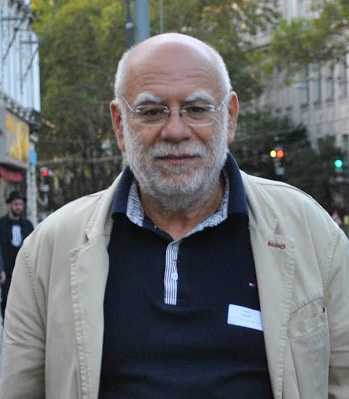
Isabel Orriss obtained a first class degree in Biochemistry from the University of Southampton in 2001. She completed her PhD, which focussed on the regulation of bone cell function by extracellular nucleotides at University College London in 2005 under the supervision of Professors Tim Arnett and Geoff Burnstock. Her post-doctoral work continued to develop this research, with support from Arthritis Research UK and the ‘ATPbone’ Europe-wide collaboration, involving groups at seven universities. Isabel obtained a 5-year Career Development Fellowship from Arthritis Research UK in 2010 to continue her work in the Bone Biology laboratory at UCL. Isabel joined the Department of Comparative Biomedical Sciences at the Royal Veterinary College in 2013 as a research fellow before becoming a lecturer in 2015. She was promoted to senior lecturer in 2018 and is the PI of the Bone Biology, Biomineralisation and Purinergic signalling group within Skeletal Biology.

András Váradi established himself as the head of the one of the leading laboratories in ABC protein research, especially in basic biochemistry of these type of transporters. His research group has been organized in the Institute of Enzymology, Budapest, Hungary since 1989 focusing on the molecular mechanism of active transport protein. They started to investigate the molecular mechanism of human multidrug ABC-transporter (eg. MDR1 multidrug resistance protein or P-glycoprotein) and to study the membrane topology and functional domains of the second multidrug transporter, MRP1/ABCC1. They elaborated the membrane topology of ABCC1/MRP1, and identified its intracellular regulatory domain. In 2001 he initiated a project to study the function of ABCC6 protein; mutations in ABCC6 gene are associated with pseudoxanthoma elasticum. They expressed the protein, the very first time, and demonstrated its ATP-dependent transport activity and showed that loss of activity is the cause of PXE in the case of certain mutants. They published the first study on the transcriptional regulation of the human ABCC6 gene, and determined the corresponding signal transduction pathway.

